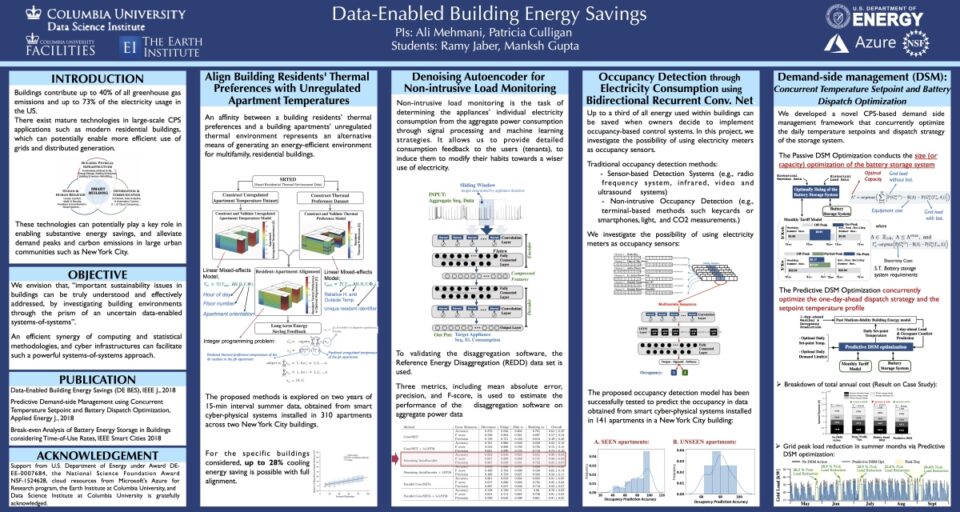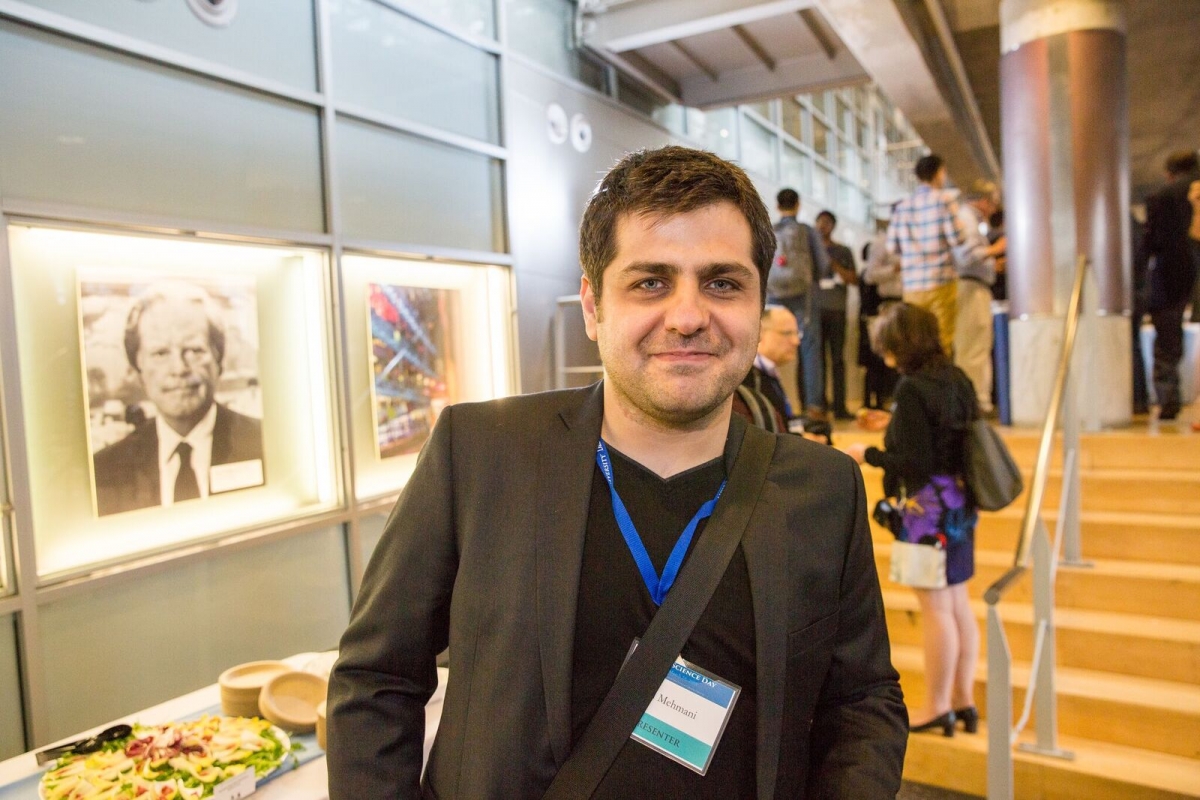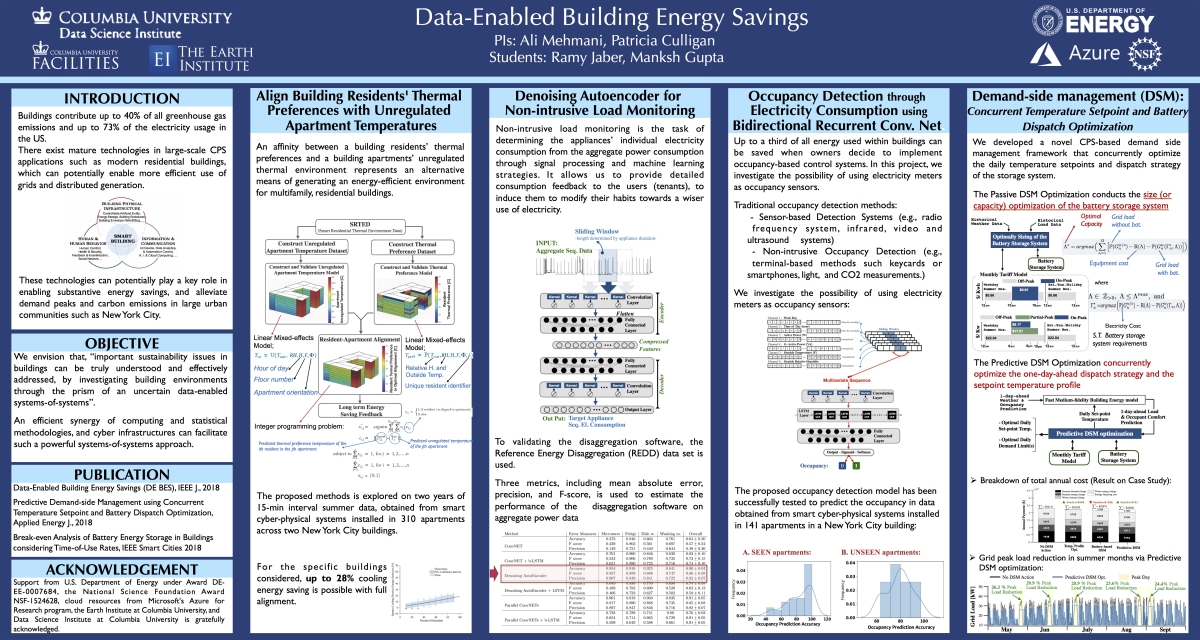


A research team affiliated with the Data Science Institute (DSI) won Best Poster Award during Data Science Day for figuring out a way to lower energy consumption in urban residential buildings.
The research project, titled Data-Enabled Building Energy Savings (D-E BES), was led by Ali Mehmani, a post-doctoral research associate. His presentation was voted Best Poster by attendees at Data Science Day, who evaluated and scored a total of 42 posters from researchers working on a variety of data-related projects.
The winning team includes Columbia Engineering Professor Patricia Culligan, a founding co-director of DSI; Sanjmeet Abrol, a recent DSI master’s graduate who works as a strategy consultant for IBM’s Chief Analytics Office; and DSI master’s students Ramy Jaber and Manksh Gupta.
Most of the current work to reduce residential energy consumption is focused on improving building infrastructure, developing energy-saving electronics or educating residents on energy-conservation practices. Mehmani’s team, though, takes a different approach: They study how personal preferences for temperature – heating and air conditioning – as well as changing the location of residents in a building based on their energy usage, can be used to develop smart environments for urban residential buildings.
“Different parts of a building are naturally warmer or cool,” said Mehmani. “If you are from South Asia and prefer to be warm, then we would place you in the appropriate apartment.”
Over a period of two summers, the team gathered data from 310 apartments affiliated with Columbia University. They collected data from smart cyber-physical systems that were installed in the units. The systems recorded energy-use, internal home temperature and occupancy data in 15-minute intervals. The researchers used data-driven approaches to model the residents’ thermal preferences and apartment-level internal free-running temperatures. They also used Microsoft’s Azure platform to store and use a machine learning-based optimization algorithm to assess the data. Mehmani has twice been awarded a Microsoft Azure grant to support the team’s research.
The team carried out its fieldwork with Columbia Facilities, since dormitory tenants at Columbia can be moved around in buildings, allowing them to be matched – given their preference for heat and air conditioning – with the right apartment.
The smart-city research project, funded by the Department of Energy and Columbia University Facilities, showed that placing tenants in an apartment based on their thermal preferences could save as much as 28 percent of electricity consumption, ultimately lowering electricity costs significantly.
Mehmani was delighted with the Best Poster Award, saying it lends credence to the worth of his team’s smart cities research.
“We will continue to work on the project and develop different ways to cut energy costs for urban communities,” said Mehmani. “It’s a very exciting time to be working on urban energy conservation, and our team is honored to be working at the forefront of this important and growing field.”

–By Bernadette Young
Apr 18 2018